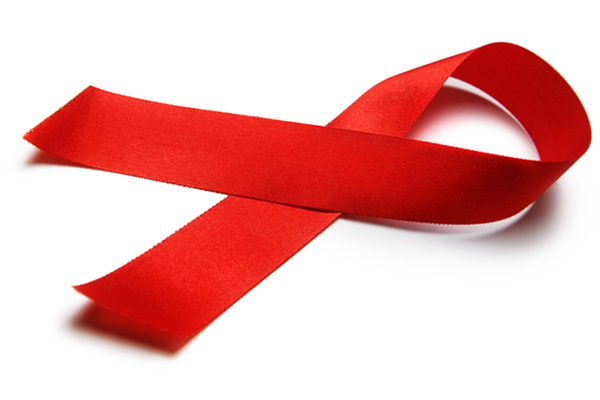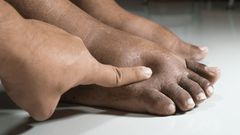Persistent concern has been expressed by AIDS Healthcare Foundation (AHF) Nigeria regarding the ongoing surge in HIV infections among young women. According to the group, an estimated 4,000 adolescent girls are newly infected with HIV worldwide every week—a sobering statistic that disproportionately affects sub-Saharan Africa and places West African nations, including Nigeria and Ghana, at the epicentre of the crisis.
The statement, delivered by AHF Nigeria’s Senior Advocacy and Marketing Manager, Steve Aborisade, in Lokoja, coincided with preparations for the 2025 International Day of the Girl Child. AHF’s data paints a challenging picture: although global strategies to combat HIV have made some headway, the infection rates among adolescent girls and young women remain distressingly high, with sub-Saharan Africa being the hardest hit.
“The statistics are alarming despite ongoing progress, especially in our region,” Mr. Aborisade emphasized. He noted that over 3,300 out of the 4,000 weekly infections occur within sub-Saharan Africa, highlighting a profound public health challenge that demands concerted action, particularly in Nigeria where youthful populations comprise a significant demographic.
In 2023, the foundation reported that 1.9 million adolescent girls and young women were living with HIV globally—a figure that dramatically overshadows the 1.2 million boys and young men in the same age bracket. This widening gap signals not only a health disparity but also underscores deeper issues related to gender and access to essential services.
“We’re facing not just a medical issue, but a crisis rooted in gender inequality and limited access to education,” Aborisade continued. With approximately 133 million girls out of school globally, opportunities for empowerment and pathways to health are severely restricted, particularly in areas where poverty and cultural factors further compound these vulnerabilities.
AHF is urging national governments, NGOs, and international bodies to ramp up investments in HIV and sexually transmitted infection (STI) prevention, comprehensive testing, and accessible treatment. The foundation stressed the importance of targeted strategies for adolescent girls and young women, who face added obstacles such as period poverty, lack of sexuality education, and persistent threats of gender-based violence and child marriage.
“Addressing period poverty is essential if we truly want to close the health gap,” AHF insisted in its advocacy. Many Nigerian and West African girls miss school during menstruation due to lack of access to sanitary products or safe facilities, which in turn impacts their long-term health and livelihoods.
Stakeholders are also called upon to amplify the voices of young women, recognize their achievement against the odds, and push for policy reform that secures their right to education, health, and future opportunities. In keeping with the spirit of the International Day of the Girl, observed globally every 11 October, the 2025 theme will spotlight both ongoing and emerging issues that hinder the progress of girls in Africa and beyond.
To mark the occasion, AHF Nigeria announced it will organize an educational event on 10 October at Community Commercial Secondary School, Ikot Oku, Ubo, Offort, and Uyo in Akwa Ibom State. This event is intended not only as a platform for HIV prevention and awareness, but also as a celebration of girls’ achievements and a reminder of the urgent need to expand access to education and health services for all.
“Our goal is to keep girls safe from HIV, empower them to reach their potential, and ensure that no girl is left behind due to circumstances beyond her control,” said Echey Ijezie, Country Programme Director for AHF Nigeria. Ijezie expressed deep concern about the myriad challenges young Nigerian girls continue to face—from insufficient menstrual health management and gender-based violence, to inadequate reproductive health services in schools and communities.
According to Ijezie, this year’s event will feature sessions on menstrual hygiene, informative NOWAHALAZONE talks, and provide an interactive platform for girls to showcase their ideas and initiatives—some of which will be recognized with awards and gifts. Free sanitary pads will be distributed to all participants, and selected girls will have the opportunity to join ongoing mentorship and development programmes through the NOWAHALAZONE platform.
Civil society organizations, representatives from government, and the Akwa Ibom State Commissioner for Women Affairs are expected to attend, signalling strong support from key sectors in the fight to protect and empower young women. Educational and health sector stakeholders told local media that such partnerships are crucial in tackling persistent barriers and ensuring sustainable change.
AHF has established itself as the world’s largest non-profit provider of HIV/AIDS healthcare, supporting over 2.5 million individuals across more than 50 countries, including thousands in Nigeria. The organization’s advocacy is credited for pushing policy change and expanding direct services, but experts caution that major challenges remain.
“Progress has been made, but funding for prevention and education is still inadequate, and stigma continues to prevent many girls from seeking timely care,” observed Dr. Fatima Abdullahi, a Lagos-based public health analyst. She urged local leaders to fully integrate sexuality education and family planning into both primary and secondary curriculums and called for collaborative efforts with traditional and religious institutions to dispel myths and reduce discrimination.
A teacher at the Community Commercial Secondary School in Uyo, who asked to remain anonymous, shared, “Education on these issues is as important as the health services themselves. Many parents are not fully aware of the risks, and girls tend to keep silent out of fear or shame. Events like these make a real difference in breaking that cycle.”
Regionally, similar challenges are noted in Ghana and other West African countries, where factors such as early marriage, limited health infrastructure, and gender norms act as significant barriers. According to a 2022 UNAIDS report, adolescent girls in Nigeria are three to four times more likely to contract HIV than boys—a trend expected to persist without urgent intervention.
Globally, the fight against HIV/AIDS remains an uphill battle, but initiatives led by organizations like AHF demonstrate that change is possible when communities, governments, and NGOs work together. As countries move toward achieving United Nations Sustainable Development Goal 3 (Good Health and Well-being), keeping girls in school and ensuring access to sexual and reproductive health services are crucial steps for both Nigeria and the wider region.
What steps do you believe communities and policymakers should take to better protect and empower girls in Nigeria and across Africa? Share your thoughts in the comments and join us as we continue to spotlight these critical issues. If you have insights, a related experience, or a story to tell, we invite you to get involved.
For general support, reach out at support@nowahalazone.com.
Follow us on Facebook, X (Twitter), and Instagram for more updates!
Are you passionate about health advocacy in Nigeria or Africa? Drop your thoughts below and stay connected for more news, in-depth analysis, and opportunities to make your voice heard!










